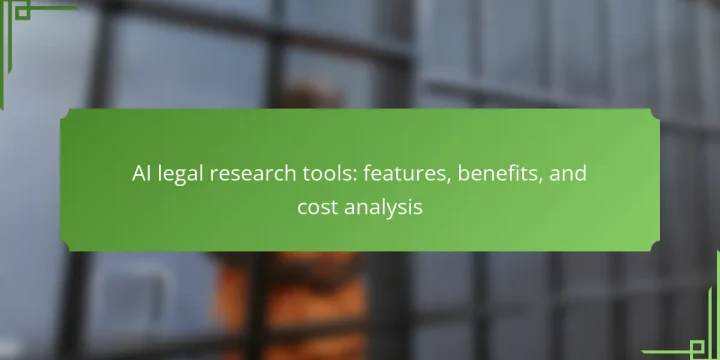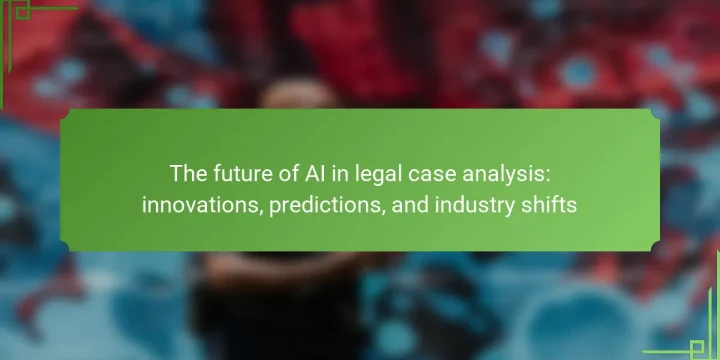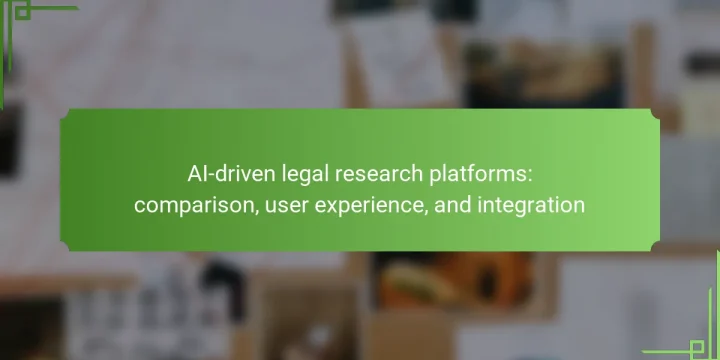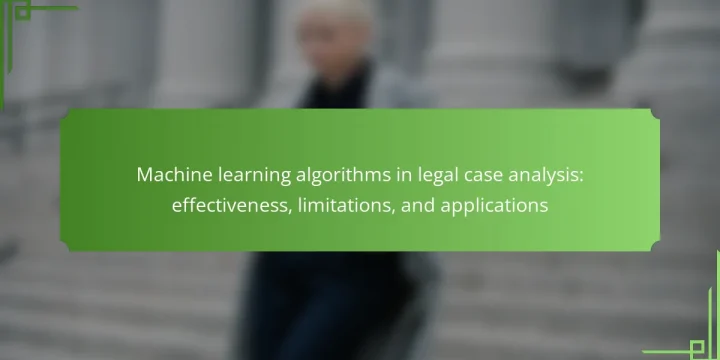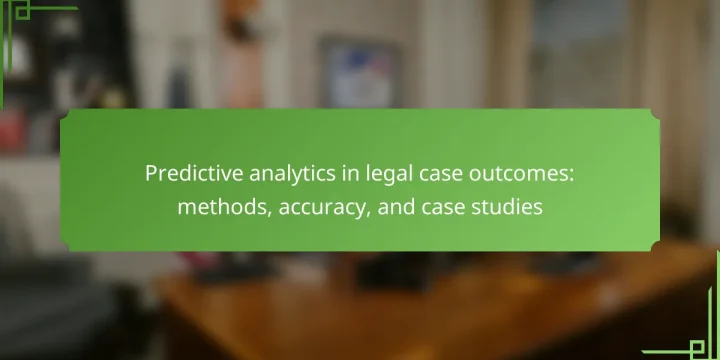
What is predictive analytics in legal case outcomes? Predictive analytics in legal case outcomes refers to the use of statistical algorithms and machine learning techniques to forecast the results of legal cases. This approach analyzes historical data from past cases, including variables such as case type, jurisdiction, and involved parties. It identifies patterns that can indicate the likelihood of various outcomes, such as winning or losing a case. For example, a study by the Harvard Law School’s Berkman Klein Center found that predictive models can achieve over 70% accuracy in predicting case outcomes based on historical data. This method enables legal professionals to make informed decisions about case strategies and resource allocation. How does predictive analytics apply to the legal field? Predictive analytics applies to the legal field by analyzing…

